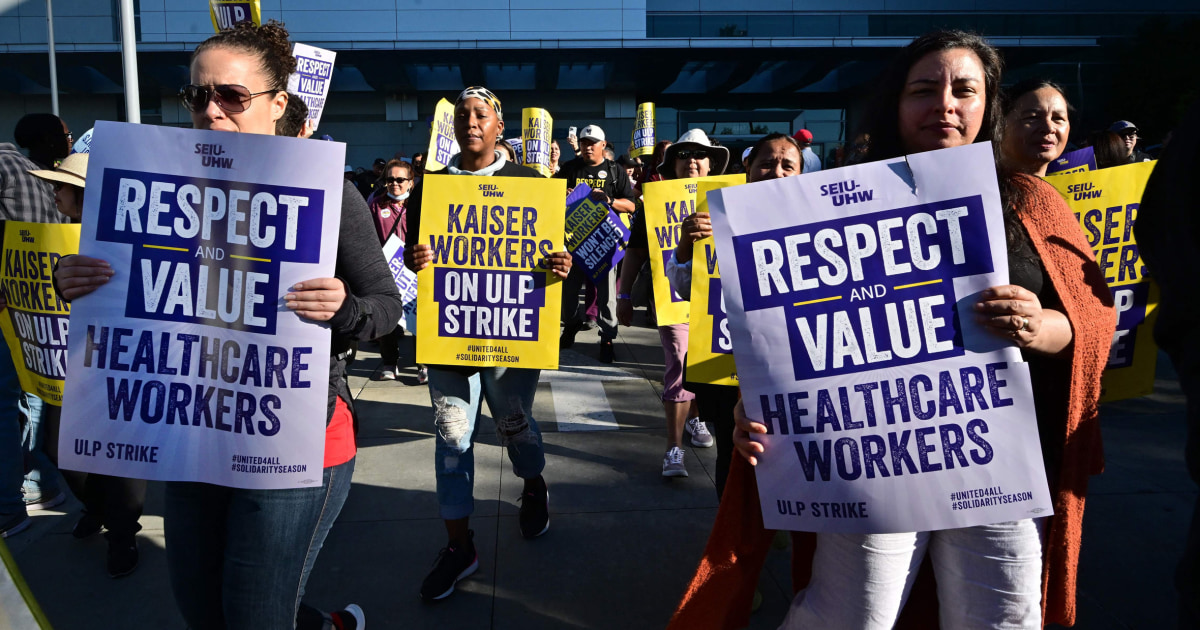Operations were rescheduled, chemotherapy treatments were canceled, and other “non-urgent” procedures were postponed as tens of thousands of health care workers across the U.S. went on strike. This strike, considered the largest in the history of health care worker strikes, involves more than 75,000 Kaiser Permanente employees demanding improved working conditions after failed contract negotiations. The strike, expected to last three days in some areas, affects over 40 Kaiser Permanente hospitals and medical office buildings in California, Colorado, Washington, Oregon, Virginia, and Washington, D.C.
The majority of striking workers are in California, where Kaiser Permanente, the largest nonprofit health care organization in the country, is based.
The strike caused disruptions leaving patients reeling. One such case is 17-month-old Caden Young from Sacramento, whose ear tube surgery was postponed until December due to limited staff. The surgery would have relieved his recurring ear infections and reduced his reliance on antibiotics. Another patient, John Schnaidt from Modesto, had his weekly chemotherapy session for terminal pancreatic cancer canceled, but the cancellation was reversed after seeking help from the media.

Tiffany Young
The strike has left many chairs empty, as expressed by Lisa Schnaidt, whose husband’s chemotherapy session was initially canceled due to understaffing. Alanna Darby, who had been waiting for gender-affirming surgery, also experienced a cancellation. Kaiser mentioned that they might need to reschedule non-urgent appointments and procedures if appropriate and safe for the patient, but assured that they are committed to minimizing disruption during the strike.
Despite the strike, Kaiser emphasizes that all hospitals and emergency departments remain open, and contingency plans are in place with trained contract workers to ensure that the urgent needs of patients are prioritized.
Many medical offices, departments, and services in California were listed as closed on Kaiser’s website during the strike.
The striking workers include a wide range of health care professionals, such as nurses, optometrists, behavioral health workers, pharmacists, and technicians.
Both Kaiser and union representatives continue to negotiate for a new agreement while assuring patients that their needs will be met.
Denial of responsibility! Vigour Times is an automatic aggregator of Global media. In each content, the hyperlink to the primary source is specified. All trademarks belong to their rightful owners, and all materials to their authors. For any complaint, please reach us at – [email protected]. We will take necessary action within 24 hours.


